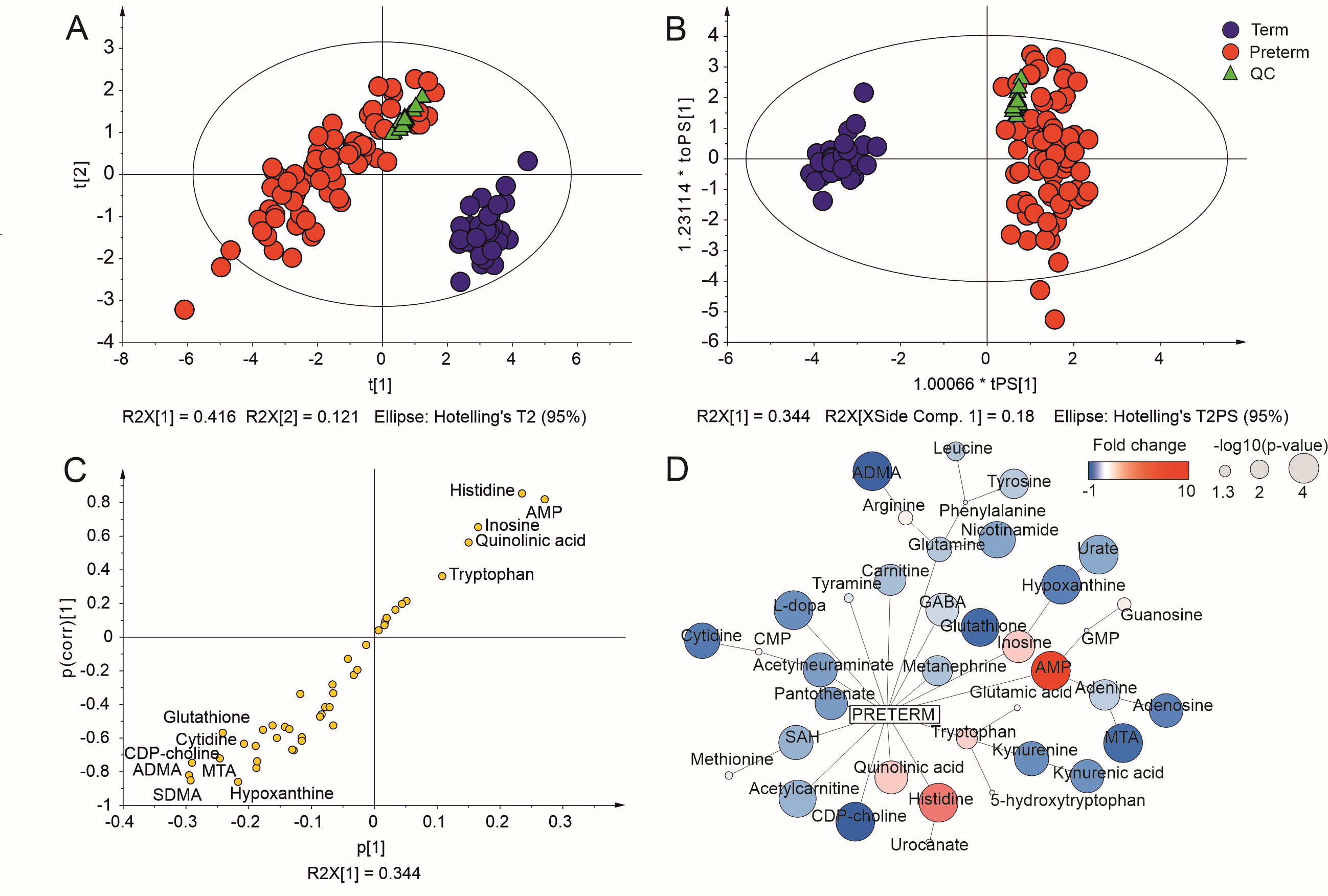Metabolomic analysis of the human placenta reveals perturbations in amino acids, purine metabolites, and small organic acids in spontaneous preterm birth
DOI:
https://doi.org/10.17179/excli2023-6785Keywords:
placenta, preterm birth, metabolomics, inflammation, metabolismAbstract
Spontaneous preterm delivery presents one of the most complex challenges in obstetrics and is a leading cause of perinatal morbidity and mortality. Although it is a common endpoint for multiple pathological processes, the mechanisms governing the etiological complexity of spontaneous preterm birth and the placental responses are poorly understood. This study examined placental tissues collected between May 2019 and May 2022 from a well-defined cohort of women who experienced spontaneous preterm birth (n = 72) and healthy full-term deliveries (n = 30). Placental metabolomic profiling of polar metabolites was performed using Ultra-High Performance Liquid Chromatography/Mass Spectrometry (UHPLC/MS) analysis. The resulting data were analyzed using multi- and univariate statistical methods followed by unsupervised clustering. A comprehensive metabolomic evaluation of the placenta revealed that spontaneous preterm birth was associated with significant changes in the levels of 34 polar metabolites involved in intracellular energy metabolism and biochemical activity, including amino acids, purine metabolites, and small organic acids. We found that neither the preterm delivery phenotype nor the inflammatory response explain the reported differential placental metabolome. However, unsupervised clustering revealed two molecular subtypes of placentas from spontaneous preterm pregnancies exhibiting differential enrichment of clinical parameters. We also identified differences between early and late preterm samples, suggesting distinct placental functions in early spontaneous preterm delivery. Altogether, we present evidence that spontaneous preterm birth is associated with significant changes in the level of placental polar metabolites. Dysregulation of the placental metabolome may underpin important (patho)physiological mechanisms involved in preterm birth etiology and long-term neonatal outcomes.

Downloads
Additional Files
Published
How to Cite
Issue
Section
Categories
License
Copyright (c) 2024 Eva Cifkova, Rona Karahoda, Jaroslav Stranik, Cilia Abad, Marian Kacerovsky, Miroslav Lisa, Frantisek Staud

This work is licensed under a Creative Commons Attribution 4.0 International License.
Authors who publish in this journal agree to the following terms:
- The authors keep the copyright and grant the journal the right of first publication under the terms of the Creative Commons Attribution license, CC BY 4.0. This licencse permits unrestricted use, distribution and reproduction in any medium, provided that the original work is properly cited.
- The use of general descriptive names, trade names, trademarks, and so forth in this publication, even if not specifically identified, does not imply that these names are not protected by the relevant laws and regulations.
- Because the advice and information in this journal are believed to be true and accurate at the time of publication, neither the authors, the editors, nor the publisher accept any legal responsibility for any errors or omissions presented in the publication. The publisher makes no guarantee, express or implied, with respect to the material contained herein.
- The authors can enter into additional contracts for the non-exclusive distribution of the journal's published version by citing the initial publication in this journal (e.g. publishing in an institutional repository or in a book).





